Editor’s Note: The presidential election season continues to get longer and longer, and Election 2016 is no exception. Elaine Kamarck’s newest book, Primary Politics: Everything you Need to Know About How America Nominates its Presidential Candidates, explores the history of our unique nomination process. In a series of blog posts between now and the conventions, Kamarck will explain key dates, deadlines, and the political obstacles that the 2016 candidates will face throughout the process.
New Hampshire has held the first-in-the-nation primary since 1920. But only in the last decades of the twentieth century has it taken on such importance that on Tuesday the state expects to play host to thousands of television and print journalists from around America and the world. Manchester, the largest city, will be so crowded that hotel rooms are going for as high as $800 a night and it will be impossible to get a taxi or a table at a restaurant.
Why? Because it’s first.
Creating a popular presidential primary was one of those reform ideas that took a while to catch on. Until 1948, the New Hampshire primary, like most of the small number of other primaries in the country, listed only the names of locals who wanted to be delegates to the convention on the ballot. But in 1948, Richard F. Upton, speaker of the New Hampshire House of Representatives decided to make the primary “more interesting and meaningful…so there would be a greater turnout at the polls.” He did this by passing a law allowing citizens to vote directly for the presidential candidates. Any candidate could get on the ballot if he submitted fifty supporting petitions from each of the two congressional districts, and voters could choose delegates who were explicitly pledged to a particular candidate.
The new law had an immediate national impact. In 1952 President Harry Truman was a very unpopular president. The Korean War was dragging on into its third year and the Truman Administration was beset by scandals. In the New Hampshire primary Senator Estes Kefauver of Tennessee beat Truman by approximately 4,000 votes and won all the delegates. Truman decided not to run for his second full term. Things were every bit as exciting on the Republican side. From the time General Dwight D. Eisenhower arrived home from the Second World War, politicians from both parties had been trying to convince him to run for president. But he was a reluctant candidate and most people didn’t even know if he was a Democrat or a Republican. But in 1952 a group of Eisenhower supporters in New Hampshire took advantage of the new law and put his name on the Republican ballot. Without ever stepping a foot in the state, Ike won the primary with 50% of the vote—beating the party favorite, Senator Robert A. Taft of Ohio, by 12 points. And the rest was history.
But in spite of this historic start, it took another sixteen years for New Hampshire to attract the nation’s attention. In 1968, another unpopular president, Lyndon B. Johnson, also plagued by an unpopular war, found himself finishing ahead of anti-war leader Senator Gene McCarthy of Minnesota by only eight points. The President’s weak “win” was interpreted as a “loss” and Johnson dropped out of his re-election race shortly thereafter.
It wasn’t until 1972 that New Hampshire assumed the hallowed place in the American nomination system that it has held ever since. As a result of the contentious 1968 Democratic Convention, the Democrats established a commission and passed a series of reform rules. Not one of those rules said “the first contests should be enormously important.” And not one of those rules said that there should be lots and lots of primaries. But in a story that’s too long to go into here—that’s what happened. Between 1968 and 1976 the number of primaries nearly doubled, as did their importance. Now, instead of primaries being “beauty contests” only—they actually determined delegate strength.
Once primaries became important, so did sequence in which they occurred. In a sequential contest the results of one primary affect the subsequent contests. And in this new world, New Hampshire became the place where dreams were dashed and presidents were made. An upstart candidate, former Governor Jimmy Carter of Georgia, understood this and won the 1976 nomination. Democrats then spent the next three decades trying to decrease the importance of Iowa and New Hampshire on the nomination process. Congressman Mo Udall, who got beat by Carter, told the Democrats “In my judgement, the voters of New Hampshire, an unrepresentative state, were probably more important in ’76 in both parties, than all of the voters in California.” Republicans, whose nomination system was transformed, rather accidentally, by the Democrats, also complained about the outsized influence of Iowa and New Hampshire.
From time to time in the following years, other states have tried to jump before New Hampshire only to discover that New Hampshire law says:
“The presidential primary election shall be held on the second Tuesday in March or on a Tuesday selected by the secretary of state which is 7 days or more immediately preceding the date on which any other state shall hold a similar election, whichever is earlier, of each year when a president of the United States is to be elected or the year previous…”
The fact of the matter is that after all these years, the voters of New Hampshire really care about their primary. They like the attention, the visibility and the economic stimulus that it brings every four years. Unlike voters in any other state, the voters of New Hampshire expect their politicians to protect their first in the nation status. And they do. The last time New Hampshire’s status was challenged was 2008, when Florida and Michigan tried to go early. Both political parties punished them. As so New Hampshire’s status lives on.
The Brookings Institution is committed to quality, independence, and impact.
We are supported by a diverse array of funders. In line with our values and policies, each Brookings publication represents the sole views of its author(s).


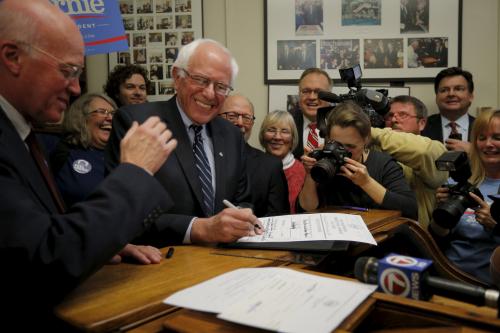

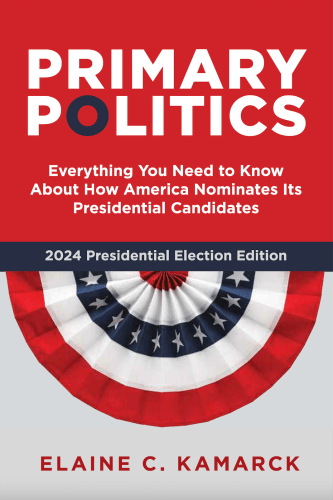
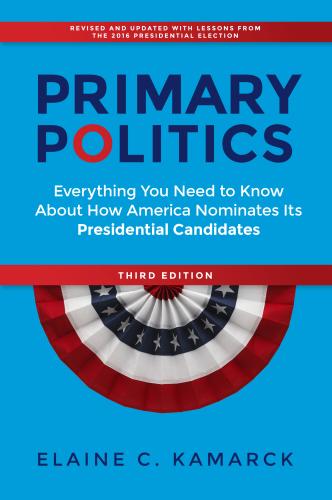

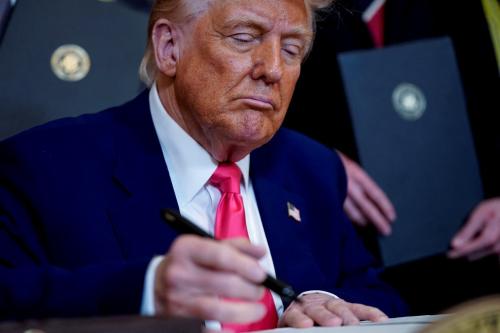

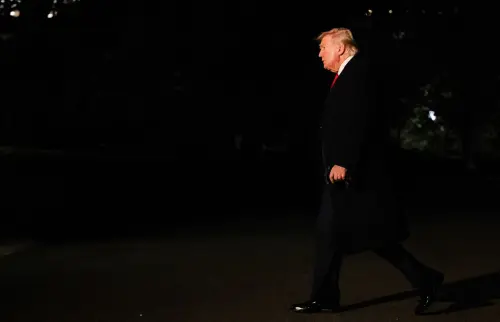
Commentary
Why is New Hampshire the first primary in the nation?
February 5, 2016